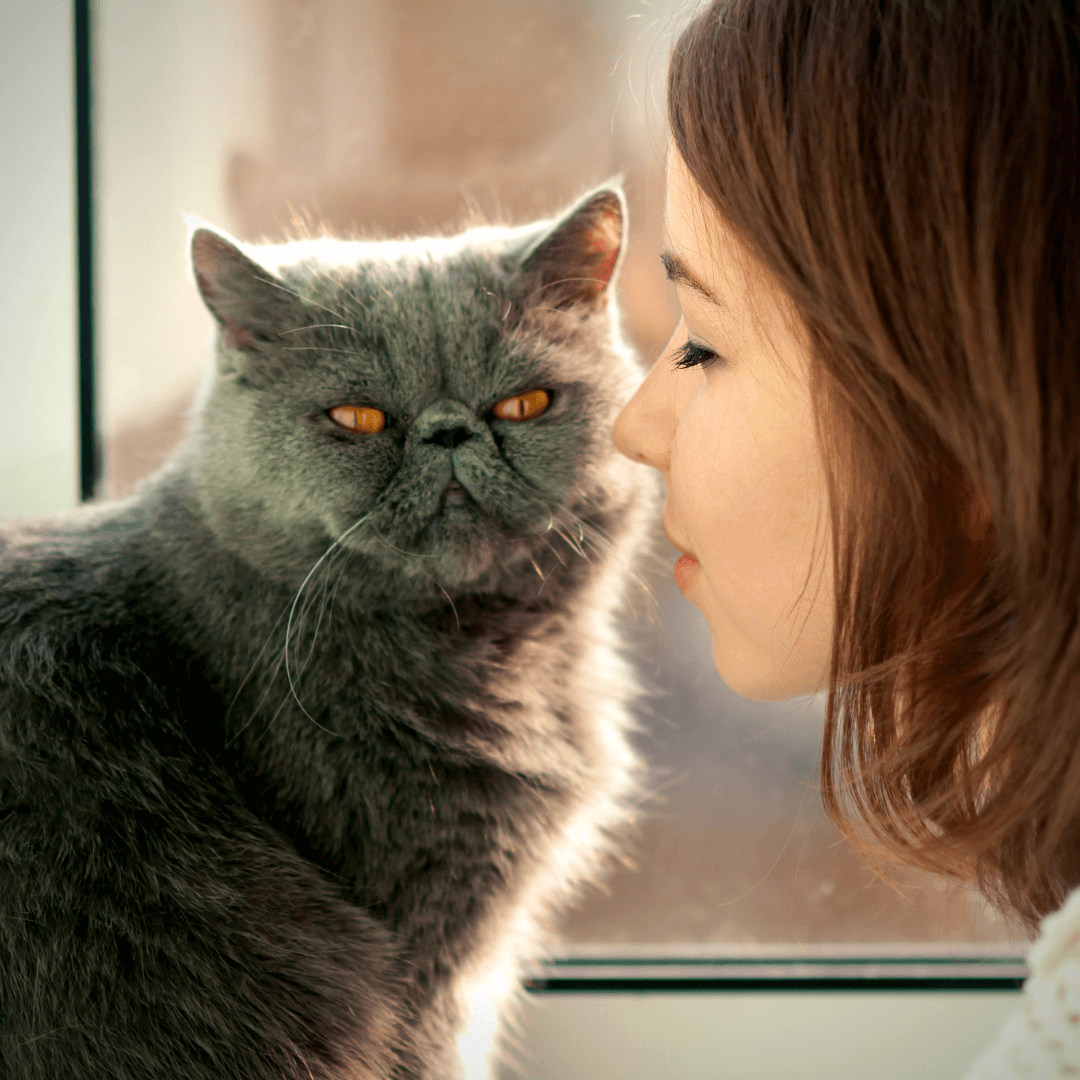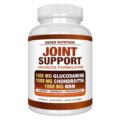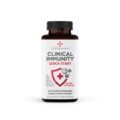Is your feline friend not acting like their usual playful self? You might be surprised to learn that vitamin deficiencies could be the hidden culprit.
Just like humans, cats need a balanced diet packed with essential nutrients to stay healthy and happy. When these nutrients are missing, it can lead to a range of health issues that might leave you worried and your cat feeling less than their best.
We’ll uncover the common vitamin deficiencies in cats, how they affect your furry companion, and what you can do to ensure they get the nutrients they need. Keep reading to discover how you can enhance your cat’s well-being and keep that purr going strong!
Also Read

Credit: petperennials.com
Common Vitamin Deficiencies
As a cat owner, you might often wonder if your feline friend is getting all the nutrients they need to thrive. Vitamin deficiencies in cats can lead to various health issues, affecting their energy, skin, and overall well-being. Recognizing these deficiencies early can help ensure your kitty stays happy and healthy. Let’s dive into some common vitamin deficiencies in cats and how you can address them.
Vitamin A Deficiency
Vitamin A is crucial for your cat’s vision and immune system. Cats can’t convert beta-carotene into vitamin A like humans can, so they rely entirely on their diet. If your cat seems to have trouble seeing in dim light or appears lethargic, it might be time to evaluate their vitamin A intake.
Consider incorporating liver or fish oils into their diet, but be careful not to overdo it. Too much vitamin A can be toxic. Have you ever noticed your cat sneezing more than usual? This might be a sign they’re fighting off an infection due to weak immunity.
Vitamin D Deficiency
Vitamin D is essential for healthy bones and calcium absorption. Unlike humans, cats can’t synthesize vitamin D from sunlight, making dietary sources vital. If your cat is experiencing bone pain or weakness, it could be due to a deficiency in vitamin D.
Include foods like fish or fortified cat food to boost their vitamin D levels. Does your cat avoid jumping onto their favorite perch? A vitamin D deficiency might be the culprit behind this newfound hesitation.
Vitamin E Deficiency
Vitamin E acts as an antioxidant, protecting your cat’s cells from damage. A deficiency may lead to muscle weakness and reproductive issues. Have you noticed your cat struggling to move or seeming unusually fatigued?
Adding nuts or seeds to their diet can help, but ensure they’re cat-safe choices. Could this deficiency be the reason your cat is less playful? Addressing it might bring back their youthful energy.
Vitamin B Complex Deficiencies
The B vitamins are a group that supports energy metabolism and nervous system function. Symptoms like poor appetite, weight loss, and skin issues can signal deficiencies in this area.
Offer foods rich in B vitamins, such as poultry and eggs, to help maintain their overall health. Have you ever considered how your cat’s diet affects their mood? A well-balanced intake of B vitamins can make all the difference.
Are you ready to make changes to your cat’s diet to ensure they’re getting all the vitamins they need? Regularly checking your cat’s health and diet can prevent these deficiencies and keep them in top shape. Your feline friend depends on you for their nutritional needs, so take action today!
Causes Of Vitamin Deficiencies
Vitamin deficiencies in cats often arise from poor diet, illness, or age-related absorption issues. Cats need a balanced diet to stay healthy. Without essential vitamins, they risk developing health problems.
Understanding the causes of vitamin deficiencies in cats is crucial for ensuring their health and well-being. Cats, like humans, require a balanced diet rich in essential vitamins. Without these nutrients, they can face various health issues. Have you ever noticed your cat looking a bit off or less energetic? This could be a sign of a vitamin deficiency. Let’s dive into some of the main causes of these deficiencies.1. Poor Diet
A poor diet is often the primary cause of vitamin deficiencies in cats. Feeding your cat solely on dry food or a homemade diet without proper research can lead to missing essential nutrients. Many commercial cat foods are formulated to meet all nutritional needs, but not all are created equal. It’s important to read labels carefully and choose high-quality brands. If you’re unsure, consulting with a veterinarian about your cat’s diet can help.2. Underlying Health Conditions
Certain health conditions can contribute to vitamin deficiencies in your feline friend. For instance, diseases like diabetes or hyperthyroidism may interfere with how your cat processes vitamins. If your cat has a chronic health condition, regular vet check-ups are essential. They can help detect any deficiencies early and adjust treatment plans accordingly.3. Absorption Issues
Sometimes, even if a cat is eating a balanced diet, they might not be absorbing the vitamins properly. Gastrointestinal problems, such as inflammatory bowel disease, can lead to poor absorption. Have you ever thought about how your cat’s gut health could affect their overall well-being? Ensuring your cat’s digestive system is healthy can play a big role in preventing vitamin deficiencies. Regular vet visits and monitoring can help identify and address absorption issues promptly. In conclusion, understanding these causes can empower you to make informed decisions about your cat’s diet and health care. By being proactive, you can help prevent vitamin deficiencies and keep your furry friend healthy and happy. Have you checked your cat’s food label lately? It might be time for a diet review.Symptoms To Watch For
Vitamin deficiencies in cats can often manifest in subtle ways. Recognizing the symptoms early can prevent serious health issues. Knowing what to watch for can help keep your feline friend healthy. Below are some common signs that may indicate a deficiency.
Skin And Coat Problems
One noticeable sign is changes in skin or coat. A dull coat often suggests a lack of essential vitamins. You might see dry skin, flakiness, or excessive shedding. Cats may also experience itching or irritation. These symptoms can point to a deficiency in vitamins like A or E.
Behavioral Changes
Behavioral changes can signal a vitamin deficiency. Cats may become lethargic or show less interest in play. Anxious behavior or sudden aggression might also appear. These shifts could be due to inadequate B vitamins. Regular observation of your cat’s behavior is crucial.
Digestive Issues
Digestive problems are another symptom to watch for. Vomiting or diarrhea may indicate a deficiency. Lack of vitamins can disrupt normal digestion. Cats might also experience weight loss or poor appetite. These issues often relate to deficiencies in vitamin B12 or K.

Credit: petperennials.com
Diagnosis And Testing
Detecting vitamin deficiencies in cats requires careful diagnosis and testing. A precise approach ensures proper treatment and care for your feline friend. Cats can’t express their discomfort directly. So, understanding their health needs is vital. Let’s explore the steps involved in diagnosing vitamin deficiencies in cats.
Veterinary Assessment
A veterinary assessment is the first step in identifying potential vitamin deficiencies. The vet examines your cat’s overall health and behavior. Observing physical symptoms helps in pinpointing specific deficiencies. Symptoms like weight loss, dull coat, or lethargy might indicate a problem. The vet will ask about your cat’s diet and lifestyle. This information helps in understanding the root cause of the deficiency.
Blood Tests
Blood tests play a crucial role in diagnosing vitamin deficiencies in cats. They provide a clear picture of your cat’s nutrient levels. Blood tests can detect levels of vitamins like B, D, and others. Low levels might indicate a deficiency that needs addressing. These tests guide the vet in prescribing the right supplements or dietary changes.
Dietary Evaluation
Evaluating your cat’s diet is essential in understanding vitamin deficiencies. A balanced diet ensures your cat receives all necessary nutrients. The vet will assess the quality and variety of food your cat consumes. Sometimes, commercial cat food lacks essential vitamins. Homemade diets might also miss crucial nutrients. Adjusting the diet can help correct deficiencies and improve your cat’s health.
Treatment Options
Cats need proper vitamins to stay healthy. Treatment for vitamin deficiencies includes supplements and balanced diets. Veterinarians can suggest specific plans to restore health. Regular check-ups ensure cats get the nutrients they need.
When your feline friend shows signs of vitamin deficiencies, it’s crucial to take action. Identifying the right treatment options can make a world of difference in their health and happiness. The treatment typically involves dietary adjustments, supplementation, and addressing any underlying health conditions. Let’s explore these options to help your cat thrive.Dietary Adjustments
Adjusting your cat’s diet can be a simple yet effective way to combat vitamin deficiencies. Consider introducing a variety of high-quality, nutrient-rich cat foods. Many brands offer special formulas that cater to different health needs. Homemade diets can also be beneficial. However, they require careful planning to ensure they provide all necessary nutrients. Consult with your vet to create a balanced meal plan. Think about the treats you give your cat, too. Opt for those that add nutritional value rather than empty calories. Are there any local pet stores offering unique, healthy options?Supplementation
Sometimes, food alone isn’t enough to meet your cat’s nutritional needs. Supplements can bridge the gap. They come in various forms like powders, liquids, or tablets. Vitamin B12 and taurine are common supplements for cats. These are often recommended for their roles in energy production and heart health. Be cautious with dosages. Over-supplementing can be harmful, so always follow your vet’s guidance. Have you checked if your vet offers any specific supplement recommendations?Addressing Underlying Conditions
Vitamin deficiencies might signal more serious health issues. Conditions like kidney disease or diabetes can affect nutrient absorption. Regular vet check-ups are crucial. They help identify and address these underlying conditions early on. Treatment might involve medication or more intensive dietary changes. Are you prepared to discuss these possibilities with your vet? By actively engaging in these treatment options, you play a vital role in your cat’s well-being. What steps are you ready to take to ensure your furry friend stays healthy and happy?Credit: www.animalbiome.com
Preventive Measures
Ensuring a balanced diet is crucial to prevent vitamin deficiencies in cats. Regular veterinary check-ups help identify potential deficiencies early. Include a variety of cat foods rich in essential vitamins to maintain their health.
Vitamin deficiencies in cats are a concern for many pet owners. Ensuring your feline friend maintains optimal health requires proactive steps. Implementing preventive measures not only safeguards against deficiencies but also enhances your cat’s overall well-being. By focusing on key areas such as diet, veterinary care, and nutrition monitoring, you can make a significant difference in your cat’s life.Balanced Diet
A balanced diet is the cornerstone of preventing vitamin deficiencies in cats. Feeding your cat high-quality commercial food ensures they receive essential nutrients. Look for labels indicating “complete and balanced” to ensure the food meets basic nutritional requirements. Consider your cat’s specific needs when selecting their diet. Kittens, adult cats, and seniors have different nutritional needs. Tailoring their diet to their life stage can prevent deficiencies and support their health. Don’t shy away from mixing wet and dry food. Wet food can provide hydration, while dry food can promote dental health. This combination can offer a more comprehensive nutritional profile.Regular Veterinary Check-ups
Regular veterinary check-ups are crucial in preventing vitamin deficiencies. Your vet can detect early signs of deficiencies that you might miss. They can also provide dietary recommendations based on your cat’s health status. Annual check-ups are a must, but more frequent visits may be necessary for older or sick cats. These visits allow for timely adjustments to diet and supplements, if needed. Build a good relationship with your vet. Their guidance is invaluable, and they can help you make informed decisions about your cat’s nutrition and health.Monitoring And Adjusting Nutrition
Monitoring and adjusting your cat’s nutrition can prevent deficiencies. Pay attention to changes in your cat’s weight, coat, and energy levels. These can be indicators of nutritional imbalances. Introduce new foods gradually. Sudden changes can upset your cat’s digestive system. Slowly integrating new foods allows you to monitor their reaction and adjust as needed. Stay informed about the nutritional needs of your cat. Consult your vet or reputable resources to ensure your cat’s diet is meeting their needs. Are you confident your cat is getting everything they need from their food? Being proactive about your cat’s diet and health can prevent vitamin deficiencies. Remember, a healthy cat is a happy cat, and a few preventive measures can make all the difference.Importance Of Vitamins For Feline Health
Vitamins play a crucial role in a cat’s health. They support various bodily functions. Cats need a balanced diet rich in vitamins. Deficiencies can lead to health issues.
Understanding the importance of vitamins helps keep cats healthy. Each vitamin serves a specific purpose. Ensuring a cat gets enough vitamins is vital.
Role In Growth And Development
Vitamins are key to a kitten’s growth. They help in bone development. Vitamin D is essential for strong bones. Without it, bones can weaken.
Vitamins also support nerve function. Vitamin B complex aids in energy production. It ensures a kitten grows strong and active.
Impact On Immune System
A healthy immune system fights off diseases. Vitamins like C and E boost immunity. They protect against infections.
Vitamin A helps maintain healthy skin and coat. A strong coat can prevent skin issues. Healthy skin is a barrier against germs.
Overall Well-being
Vitamins ensure a cat’s overall well-being. They improve vision and prevent eye issues. Vitamin A is crucial for eye health.
Vitamins also support digestion. A balanced diet helps with proper nutrient absorption. This keeps the cat energetic and happy.
Frequently Asked Questions
What Causes Vitamin Deficiencies In Cats?
Vitamin deficiencies in cats can occur due to poor diet, absorption issues, or underlying health conditions. Cats need specific vitamins from balanced food or supplements. Feeding a diet lacking in essential nutrients can lead to various health problems, including skin issues and weakened immunity.
How Do I Identify Vitamin Deficiencies In Cats?
Identifying vitamin deficiencies in cats involves observing symptoms like dull coat, lethargy, or weight loss. A vet can perform blood tests to confirm deficiencies. Early detection is crucial to prevent severe health issues, so regular check-ups and monitoring are important for your cat’s well-being.
Can Vitamin Deficiencies Affect A Cat’s Behavior?
Yes, vitamin deficiencies can impact a cat’s behavior, causing irritability or lethargy. Deficiencies may affect mood and energy levels. Providing a balanced diet helps maintain healthy behavior. Consult your vet for dietary adjustments if you notice behavioral changes in your cat.
What Vitamins Are Essential For Cats?
Cats require vitamins A, D, E, K, and B-complex for good health. These vitamins support vision, bone health, immune function, and metabolism. A balanced diet or supplements can provide these essential nutrients. Consult your vet for advice on the best diet for your cat.
Conclusion
Understanding vitamin deficiencies in cats is essential for their health. Cats need balanced diets to thrive. Missing key nutrients can lead to serious problems. Weak bones. Dull coat. Poor growth. Regular vet check-ups help catch issues early. Always choose quality cat food.
It ensures your cat gets necessary vitamins. Supplements may be needed sometimes. Consult your vet before adding them. A healthy cat is a happy companion. Keep their diet balanced. Watch for signs of deficiencies. Your cat depends on you for proper nutrition.
Keep them healthy, active, and joyful.




